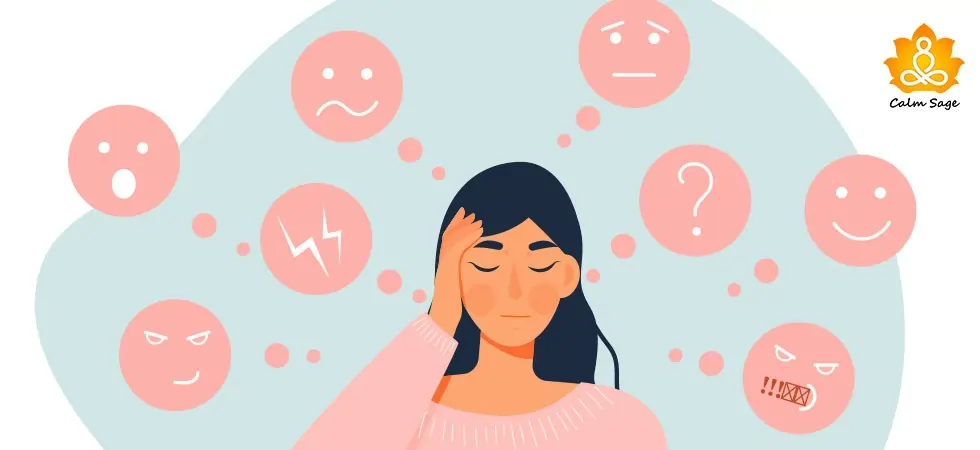What Is Overactive Imagination Disorder?

Do you imagine various scenarios when you’re sitting idle? I think I daydream a lot but not to an extent that it becomes overactive imagination. Overactive imagination is when you are so lost in your imagination that it begins to feel real.
Children have a tendency to daydream or live in an imaginary world of their own. That’s completely normal because it helps in improving their problem solving and decision making skills. Adults usually do not usually spend a lot of time in their imagination but some random episodes of daydreaming are pretty normal in adulthood.
Spending time in your imagination is alright but if you start relying on your imagination and treat all your imaginative experiences as real, you’re in some trouble. Overactive imagination pulls you away from reality and makes it really difficult for you to lead a normal life.
Do you want to know if you are just daydreaming or overactive imagination has taken over your life?
Let’s find out…
Overactive Imagination: Meaning

Overactive imagination can be described as a psychological condition which consists of vivid imaginations that feel so real that it begins to interfere with your routine activities. Overactive imagination can also be viewed as a tendency of drowning in your imagination so much so that everything that you think of feels like it is really happening.
Overactive imagination is most seen accompanying various mental health conditions like maladaptive daydreaming, fantasy prone personality disorder, etc. People who indulge in overacted imagination somehow are great storytellers, they make those imagination so real that even their senses begin to align with them, making the imaginary experience feel even more real.
Such people are seen spending a lot of their time in their imaginary world which helps them escape reality. Now, when you are not in touch with reality, it is like an open invitation to various mental health conditions. Therefore, recognizing overactive imagination and learning to cope with it is really important.
Overactive Imagination Disorder Symptoms

We all daydream or like to imagine pleasant things like having a perfect job or building a beautiful life with your partner or anything else for that matter. When we all dream about things we really want or the kind of life we want, how can someone differentiate between normal dreaming and overactive imagination?
Here are some Overactive Imagination Disorder Symptoms to watch out for;
- You tend to put too many details in your imagination and end up spend hours doing that
- Your imaginations feel like they have life, they replace reality
- You can’t stop yourself from sliding into your imagination
- Your imagination hinders you from achieving goals in life
- You feel ashamed of engaging in overactive imaginations and often hide it from others
- You find it very difficult to tell reality apart from your imagination
- You quickly switch persona and turn into another person in your imaginary world
- Don’t not get bored easily since you always have you imagination to entertain you
- Have out of body experiences
- Experience hallucinations
- Your senses contribute to your imagination (E.g.: upon imagining snow fall you feel cold)
Overactive Imagination Disorder Causes
The exact cause of overactive imagination disorder is not known yet but there are some risk factors that may lead to overactive imagination, identified by mental health experts. Let’s have a quick look at who are at a higher risk of developing overactive imagination disorder;
- People who show symptoms of dissociation/depersonalization
- People with abnormal serotonin levels
- People who engage in magical thinking caused by obsessive compulsive disorder
- People who show symptoms of schizophrenia
- People who are highly creative
- People who have had hallucination experience in the past
- People who score high in neuroticism
How To Stop An Overactive Imagination
Now, overactive imagination has not received an ‘official disorder’ status that’s why it doesn’t really have a treatment plan. Having said that, overactive imagination is an intense symptom of various mental health conditions, therefore, there are a few advised ways one can stop overactive imagination.
Here’s what you can do to stop overactive imagination;
- Look for what your triggers are: It’s important to know what makes you escape from reality and slide into your imaginary world. Take note of things that happen right before you begin overactive imagination.
- Have a hobby: when you invest your free time in engaging in a hobby of your choice so that you have very little time for overactive imagination.
- Have a packed schedule: be like a busy bee, do not sit idle. Always have something or the other to do so that you are too tired to engage in overactive imagination.
- Mindfulness: try to learn some mindfulness techniques to manage symptoms of overactive imagination.
- Talk to someone you trust: it’s always better to share your thoughts and feelings with someone you trust so that feelings of shame don’t weigh you down.
- Get professional help: if things get out of hand and overactive imagination begins to control your life, try getting some professional help.
That’s All Folks!
I hope you found this blog about overactive imagination and its symptoms helpful and informative. Do share this blog with your friends and family so that it is very easy for all of us to recognize overactive imagination as early as possible and we can all learn how to stop overactive imagination.
Thanks for reading.
Take care and stay safe.





















This article is very useful in the context of counselling, and teaching in the classrooms, especially to to the adolescents.